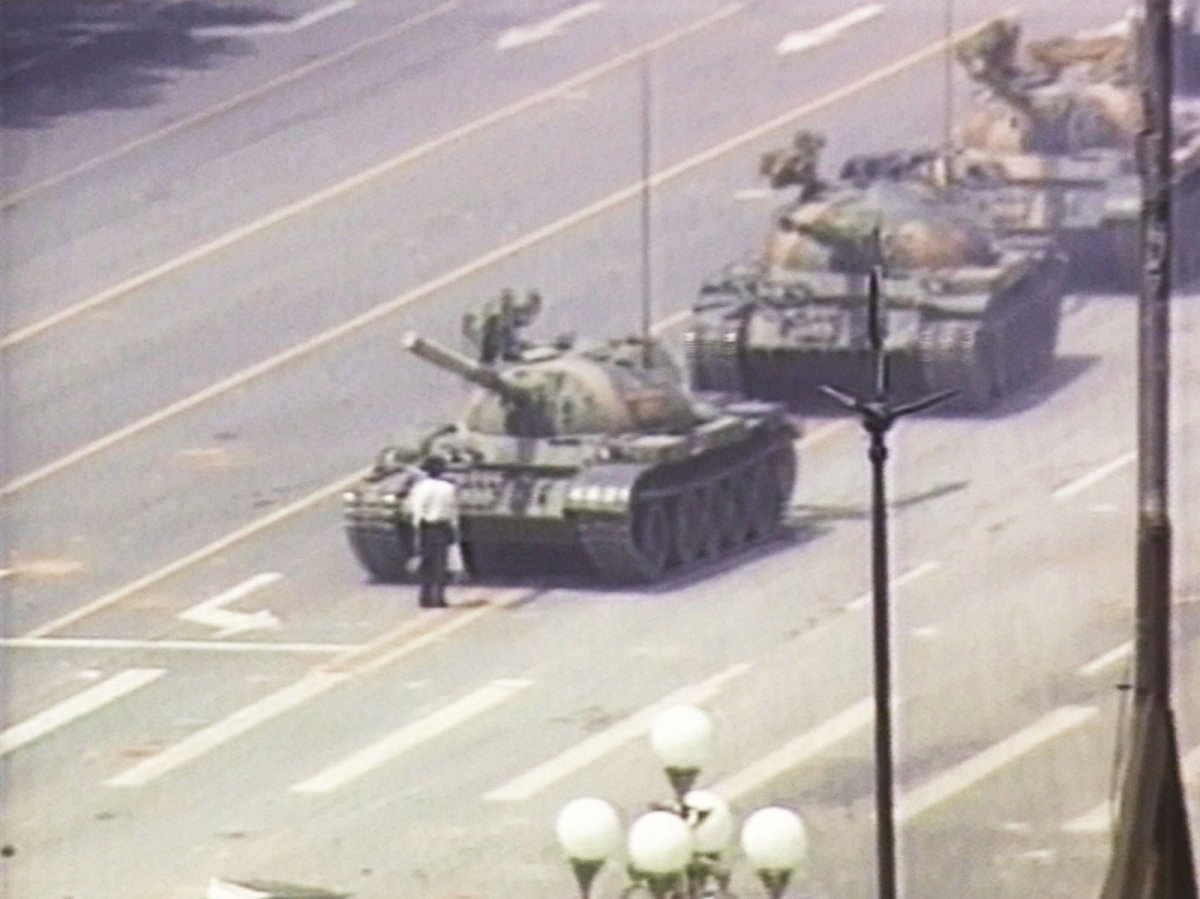A state-backed Chinese newspaper has gone on the offensive over the country's historical censorship of the Tiananmen Square protests, as the event's 30th anniversary looms.
On June 4, 1989, Chinese troops were sent to crush pro-democracy student protests in the famous square in central Beijing, leaving at least hundreds—and possibly thousands—of people dead.
The casualties included soldiers, but were overwhelmingly unarmed demonstrators who had been protesting in the square for six weeks, turning the site into the hub for protests in around 400 other cities nationwide. Millions of people took part in the demonstrations, with more than 1 million people descending on Tiananmen Square.
The event is one of the most heavily censored topics in Chinese media and on the country's social media sites. Those who discuss the events in public can be arrested and even imprisoned. Thousands of online posts have been scrubbed in the lead up to the anniversary of the massacre, which remains one of the darkest incidents in the country's modern history.
But state newspaper Global Times—which often reflects the more belligerent sentiment of the ruling Communist Party—published an editorial on Monday lauding the Chinese strategy of suppressing discussion or remembrance of the 1989 movement.
The newspaper said that further discussion of the massacre was unnecessary as the totalitarian government had "determined the nature of the incident" and Chinese society had "made a comprehensive summary of it."
"Dropping the incident thereafter has been aimed at helping the country leave the shadow behind, avoid disputes, and help all Chinese people face the future," the editorial continued.
The article said the strategy had been "a political success" and ensured that the event "has not become a long-term nightmare for the country...It has become a faded historical event, rather than an actual entanglement."
The late 1980s were a turbulent time in global politics. As the Soviet Union failed, popular uprisings and economic collapses happened across Central and Eastern Europe. While the USSR disintegrated, China's brutal suppression of its student protesters headed off calls for greater personal freedoms and democratic governance.
The editorial said the Chinese government's response was "a watershed" example of the difference between it and the socialist powers in Central and Eastern Europe, which proved unable to handle popular discontent.
Global Times said this allowed China to become the world's second largest economy and achieve "rapid improvement of people's living standards." The strategy of "avoiding arguing" about the tragedy in subsequent years "has served as a contributor to the country's economic take-off," the author added.
The Tiananmen Square experience has, Global Times suggested, acted as a "vaccination for the Chinese society" against "any major political turmoil in the future." The massacre showed that "continuous development" is only possible "through evolutions instead of revolutions."
Each year, human rights organizations, foreign governments and dissident Chinese groups abroad hold commemorations to remember the suppression of the Tiananmen Square protests. The Global Times editorial argued such events represent a direct attack on the Chinese government.
Surviving student activists who were forced to flee abroad "refuse to correct their understanding of China's development and the changes that the world has been through" since 1989, Global Times argued. "Their interests have been decoupled from the Chinese people and have merged with anti-China forces outside China. Their attitude toward the incident cannot represent those of today's Chinese public."
The editorial suggested that western politicians who commemorate the event are "mainly influenced by their countries' relations with China," though claimed such an approach will be dismissed by the Chinese people.
"Chinese people are clear that those officials are not genuinely concerned about Chinese human rights, but are making use of the incident as a diplomatic tool to challenge China," the article concluded.

Uncommon Knowledge
Newsweek is committed to challenging conventional wisdom and finding connections in the search for common ground.
Newsweek is committed to challenging conventional wisdom and finding connections in the search for common ground.
About the writer
David Brennan is Newsweek's Diplomatic Correspondent covering world politics and conflicts from London with a focus on NATO, the European ... Read more
To read how Newsweek uses AI as a newsroom tool, Click here.








